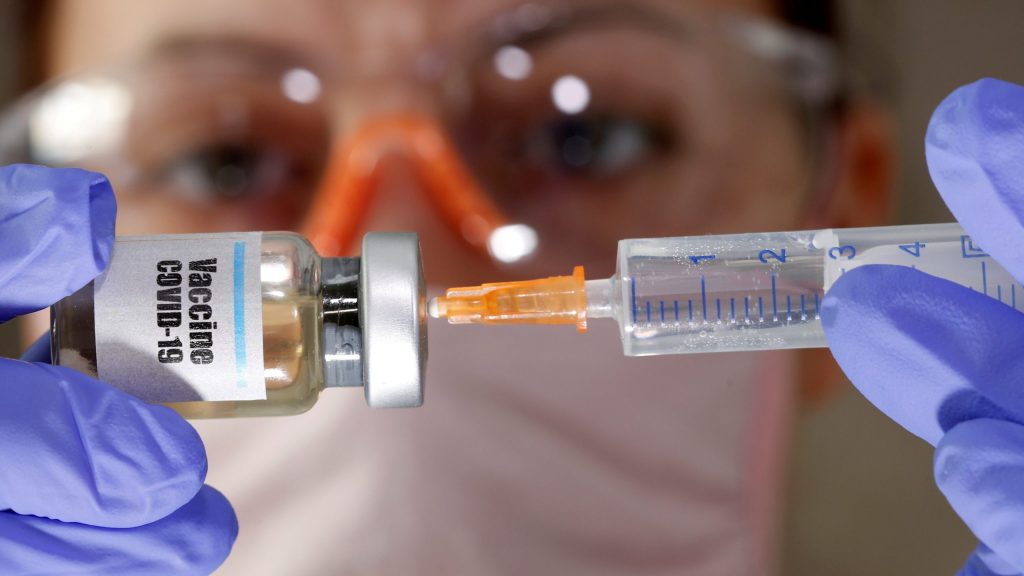A poll released Dec. 9 showed a strong majority of Americans don't see the reasons for a religious exemption to the coronavirus vaccine as valid.
"Few Americans say that the COVID-19 vaccine goes against their personal religious beliefs (13%) or that the teachings of their religion prohibit them from getting vaccinated (10%)," said a report on the poll, commissioned jointly by the Public Religion Research Institute and Interfaith Youth Core.
However, a slender majority of those polled say religious exemptions should be granted if someone has a document from a religious leader, a record of refusing other vaccinations, or belongs to a religious group that has a record of refusing other vaccines.
These details were found in the report, "Religious Identities and the Race Against the Virus: American Attitudes on Vaccination Mandates and Religious Exemptions." The Dec. 9 report is the third such PRRI-IFYC joint survey this year on vaccines.
Black Americans are less likely to be vaccine refusers today (11%) than they were in March (19%), two surveys ago.
The surveyed showed anger depending on one's vaccination stance. "Vaccinated Democrats (84%) are twice as likely as vaccinated Republicans (43%) to say they are angry at those who refuse to get vaccinated," the report said. "On the other side, more than seven in 10 unvaccinated Americans (71%) say they are 'angry at those who think they have the right to tell me to get vaccinated against COVID-19.'"
In all, 5,721 Americans were interviewed online Oct. 18-Nov. 9, including 924 white Catholics and 311 Hispanic Catholics. The margin of error for overall survey results is plus or minus 1.7%.
Fifty-nine percent of those polled agreed that vaccination was an example of loving your neighbor -- a statement which found agreement by 60% of white Catholics and 66% of Hispanic Catholics.
While 60% of white Catholics and 40% of Hispanic Catholics say government should allow people to opt out of vaccinations if they sincerely believe they violate the teachings of their religion, 62% of white Catholics and 68% Hispanic Catholics -- as did 60% of all polled -- agreed with the statement: "There are no valid religious reasons to refuse a COVID-19 vaccine."
Moreover, 59% of white Catholics, 63% of Hispanic Catholics and 59% of all surveyed said that "too many people are using religion to avoid vaccination." Smaller percentages agreed that "no one should be allowed to claim an exemption from receiving a COVID-19 vaccine based on their religious beliefs: 44% of white Catholics -- close to the 45% overall total -- and 56% of Hispanic Catholics.
Acceptance of the COVID-19 vaccine has risen since the first poll in March: The acceptance rate by white Catholics went up from 68% in March to 82% in the current poll. Meanwhile, Hispanic Catholic acceptance, initially below that of white Catholics in March (56%) shot up to 80% in the second poll in June and to 90% in the newest survey.
Hispanic Catholics also have eclipsed their white counterparts in their support for companies requiring employees to show proof of COVID-19 vaccinations, 66% to 46%.
Despite their acceptance of the COVID vaccine, 63% of Hispanic Catholics and 49% of white Catholics say they have "moderate or major concerns about the vaccines," the report said. Further, 48% of Hispanic Catholics and 44% of white Catholics agree with the statement, "The government is not telling us about other treatments for COVID-19 that are just as effective as the vaccine."
Majorities of parents in all religious groups express at least moderate concerns about vaccinations for children, including 77% of Hispanic Catholics and 65% of white Catholics. Despite misgivings, 47% of white Catholics are vaccine acceptant for their children, and 54% of Hispanic Catholics say they have gotten or will get their children vaccinated.
Of those who have gotten vaccinated, 44% Hispanic Catholics and 39% white Catholics were motivated at least in part by the desire to protect those who can't get vaccinated.
"The vaccine-hesitant category has shrunk to the point that no single religious group has sufficient sample size to report how religious approaches might influence their willingness to get vaccinated," the report said. "However ... there are still indications that some religious Americans -- particularly Christians of color -- could be reached by one or more religious approaches."
Among the examples of such outreach listed in the report were: a health care professional from a local religious community you trust addressed your concerns about the vaccine; a local religious community you trust held a forum to discuss the safety of the vaccine; a religious leader encouraged you to get the vaccine; a member of a local religious community you trust got the vaccine; and you could get the vaccine at a nearby religious congregation.

